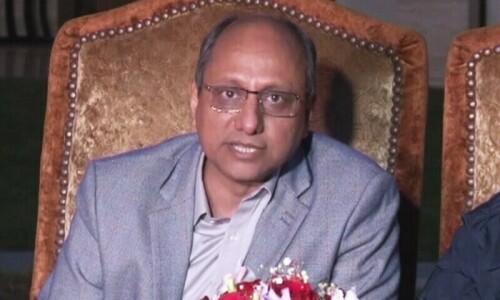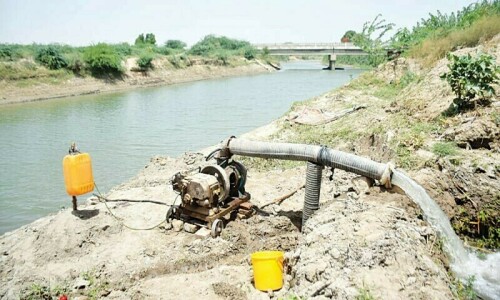When India and Pakistan misbehave with and provoke each other, the damage can quickly escalate.
Seemingly alone among the various power centres in the two countries is the PML-N government, which has consistently held out the possibility of bilateral dialogue as the only reasonable solution to the two countries’ manifold concerns.
Last week, following the devastating Quetta bombing, the security establishment and some members of Prime Minister Nawaz Sharif immediately and bluntly pointed the finger of blame at India and alleged that attempts were being made to derail CPEC.
The Foreign Office was more circumspect and later in the week reiterated what by then had become an incongruous talking point by inviting India for a dialogue on the Kashmir dispute. Perhaps in making that offer, the foreign affairs adviser, Sartaj Aziz, sought to strike a different tone and ratchet down the alarming rise in tensions between India and Pakistan.
It was not to be. In an extraordinary and premeditated verbal attack against Pakistan, Indian Prime Minister Narendra Modi had this to say at an all-party meet in parliament in New Delhi on Friday: “The time has come when Pakistan shall have to answer to the world for the atrocities committed by it against people in Balochistan” and Azad Kashmir.
Let that sink in for a moment. A serving Indian prime minister has attacked Pakistan over Pakistan’s control of a sovereign part of its territory, the very territory that Pakistan alleges India is interfering in.
At the very least, Mr Modi’s comments amount to a breach of diplomatic norms. At worst, his remarks can — and likely will — be interpreted by hawks inside Pakistan as a threat.
Perhaps Mr Modi should have considered the dismal path he has ventured down. When Balochistan is raised by India, Pakistan can counter with the instability and state-inflicted violence in northeast India. It is a path of senseless accusations and recriminations. India and Pakistan surely deserve better.
Mr Modi has also suggested that Pakistan is inflicting gross violence in AJK. But the contrast between events in AJK and IHK could not be more stark: where one region recently held a competitive and open election, the other is being systematically oppressed.
While Islamabad does have a great deal of influence in AJK and Gilgit-Baltistan, the very idea that there is mass political rejection of the prevailing system is preposterous. Through legal instruments and keeping in mind the overall Kashmir dispute, neither AJK nor Gilgit-Baltistan have been officially absorbed by Pakistan.
Mr Modi is not merely obfuscating, but in denial of the very basis of the original Pak-India dispute.
Published in Dawn, August 15th, 2016

















































